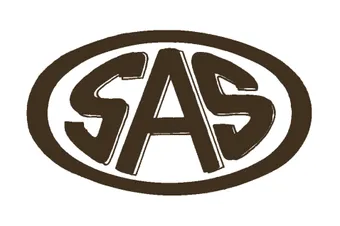Navigating the Ins and Outs of Self-Employed VAT Returns with Sandwell Accountancy Services Ltd.
If you’re self-employed, understanding and managing the world of VAT (Value Added Tax) can seem complicated. However, with the right guidance and expertise, navigating the complexities of VAT becomes second nature. At Sandwell Accountancy Services, we specialise in providing tailored solutions to simplify your VAT obligations, depending on your unique situation, and ensure you’re complying with the law. Here’s everything you need to know about self-employed VAT returns.
What is a VAT Return and Who Needs to File It?
A VAT return is a form submitted to HM Revenue and Customs (HMRC) that summarises the amount of VAT due on sales and purchases during a specific period. Businesses with a taxable turnover exceeding the VAT threshold (currently £90,000 in the UK) are required to register for VAT, and file VAT returns regularly.
How Do I Register for VAT?
Registering for VAT involves completing an online registration form through HMRC’s website. You’ll need to provide details about your business, such as its legal structure, turnover, and anticipated VAT taxable turnover. Once registered, you’ll receive a VAT registration certificate confirming your VAT number and effective registration date.
Information Required in a VAT Return and how it works
When completing a VAT return, you’ll need to include details of your VATable sales, VATable purchases, and any VAT you owe or are owed by HMRC. This information is typically derived from your business records, including sales invoices, purchase receipts, and VAT invoices.
Frequency and Deadlines for Filing VAT Returns
The frequency of VAT return filings depends on your business’s turnover and the VAT scheme you’re registered under. Most businesses file VAT returns quarterly – meaning once every three months – but some may qualify for annual or monthly filing frequencies. VAT returns must be submitted and any VAT due must be paid to HMRC within one month and seven days after the end of the VAT return period.
Filing VAT Returns Online
HMRC encourages businesses to file VAT returns online through their Making Tax Digital (MTD) platform. This streamlined process allows for efficient submission of VAT returns, all online to save the use of paperwork, and facilitates direct communication with HMRC regarding your VAT obligations.
Penalties for Late Submissions or Payments
Late submission or payment of VAT returns may result in penalties and interest charges imposed by HMRC. The severity of penalties depends on factors, such as just how many days late your return is, and how many times you have failed to meet deadlines in the past. To avoid penalties, it’s essential to adhere to VAT return deadlines and fulfil your payment obligations promptly.
Why Choose Sandwell Accountancy Services?
At Sandwell Accountancy Services, we understand the complexities of VAT returns all business’. With our dedicated team of experts, personalised approach, and commitment to excellence, we provide comprehensive VAT solutions tailored to your business needs. From registration to filing and beyond, we’re here to streamline your VAT obligations and ensure peace of mind for busy business owners who need more time to focus on the things that really matter.
In conclusion, VAT returns need not be a source of stress or confusion. With us as your trusted partner, you can navigate the VAT landscape with confidence, knowing that your VAT returns are managed with precision and expertise.
